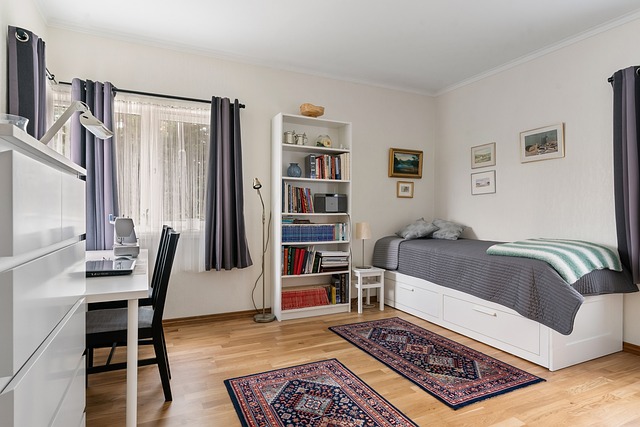In the hustle and bustle of our daily lives, the state of our living space often takes a back seat. However, the impact of a clean and organized home on our mental well-being is profound. This article explores the psychology behind maintaining a tidy living space, shedding light on the cognitive and emotional benefits that come with a clutter-free environment.
Research indicates that clutter has a direct correlation with increased stress levels. A cluttered home can lead to feelings of overwhelm and anxiety, hindering our ability to focus on tasks and relax in our own space. When our living space is disorganized, the brain perceives it as a source of stress. This perception triggers the release of cortisol, the stress hormone, contributing to heightened stress levels. Maintaining a clean home helps keep cortisol levels in check, promoting a more relaxed and serene state of mind.
Cognitive Benefits of a Tidy Home
Improved Concentration and Focus
A clutter-free environment allows the brain to concentrate on the task at hand without distractions. With fewer visual stimuli competing for attention, cognitive resources are freed up, leading to improved concentration and enhanced productivity.
Enhanced Decision-Making
An organized home simplifies decision-making processes. When everything has a designated place, it becomes easier to make choices, reducing decision fatigue and promoting a sense of control over one’s surroundings.
Emotional Well-Being and a Clean Home
Stress Reduction
A tidy home fosters a sense of order, reducing the chaos that can contribute to stress. Coming home to a clean environment provides a haven of tranquility, allowing individuals to unwind and recharge.
Boost in Mood and Happiness
The act of decluttering and organizing has been linked to increased levels of serotonin, the neurotransmitter associated with mood regulation. A clean home can contribute to a positive and uplifting atmosphere, promoting overall well-being.
The Therapeutic Nature of Cleaning
Mindful Cleaning Practices
Engaging in cleaning activities mindfully can be a form of meditation. Focusing on the present moment while performing household tasks can have a calming effect, promoting mental clarity and relaxation.
Symbolic Importance of Cleaning
The act of cleaning goes beyond the physical removal of dirt. It symbolizes a fresh start and the elimination of the old, fostering a sense of renewal and positivity.
Organizing Strategies for a Stress-Free Home
Decluttering Techniques
Effective decluttering involves letting go of items that no longer serve a purpose. Adopting minimalist principles and asking whether each item sparks joy can guide the decluttering process.
Establishing Routines
Creating daily and weekly cleaning routines helps maintain order consistently. Small, regular tasks prevent the accumulation of clutter and contribute to a clean and organized living space.
Family Dynamics and a Tidy Home
Shared Responsibilities
In a household, maintaining a clean and organized space is a collective effort. Establishing shared responsibilities fosters a sense of teamwork and ensures that everyone contributes to the overall well-being of the home.
Teaching Children the Value of Cleanliness
Instilling the importance of cleanliness in children not only contributes to a harmonious home but also teaches valuable life skills. Simple tasks like making beds and organizing toys can be introduced from an early age.
Conclusion
In essence, the psychology of a clean and organized home is an invitation—a beckoning towards a space that nurtures both the physical and the metaphysical. It is an acknowledgment that our external environment is intricately connected to our internal equilibrium. As we embark on this journey, may we remember that a clean home is not a destination but a continual voyage, a commitment to our well-being that transcends the realms of mere tidiness.
So, let us unlock the power of a tidy space, recognizing that within the simplicity of order, we find the profound beauty of a home that not only shelters our bodies but cradles our minds and spirits. In this quest for cleanliness, we discover a transformative force—one that turns our homes into sanctuaries and elevates the everyday into the extraordinary.














